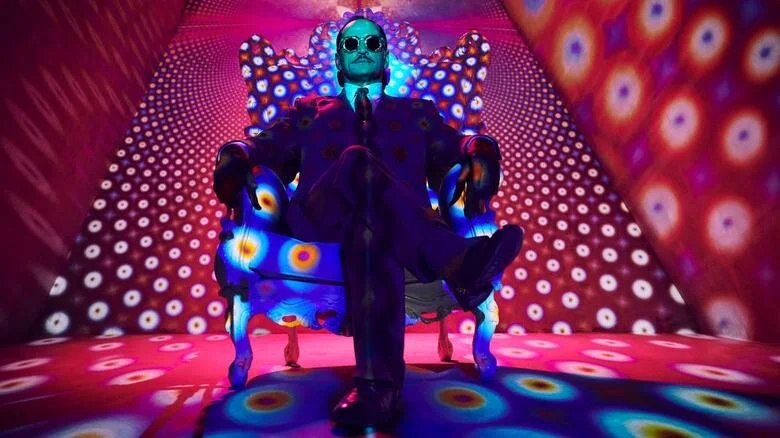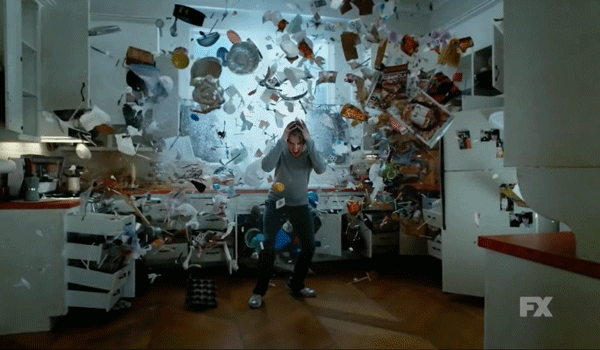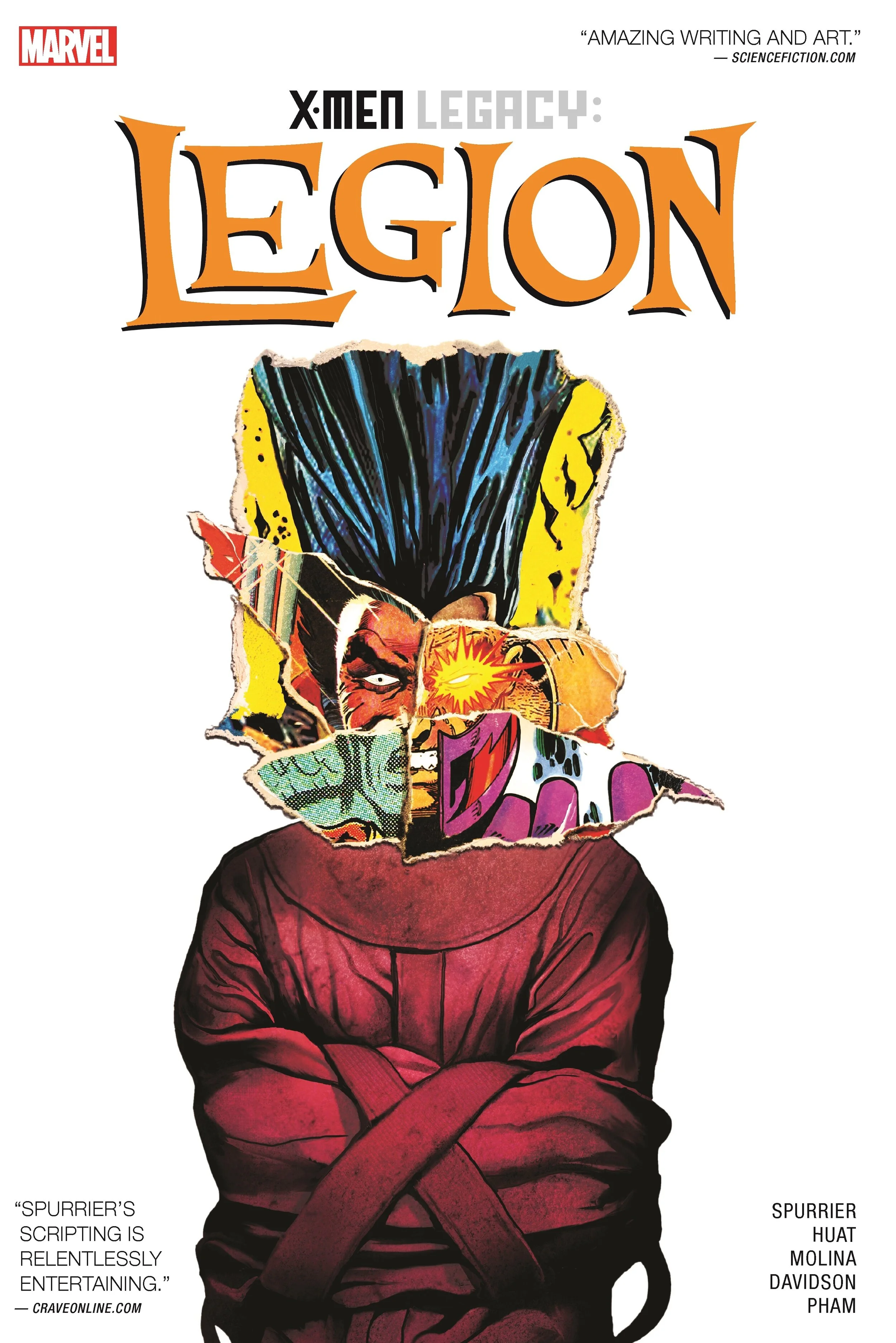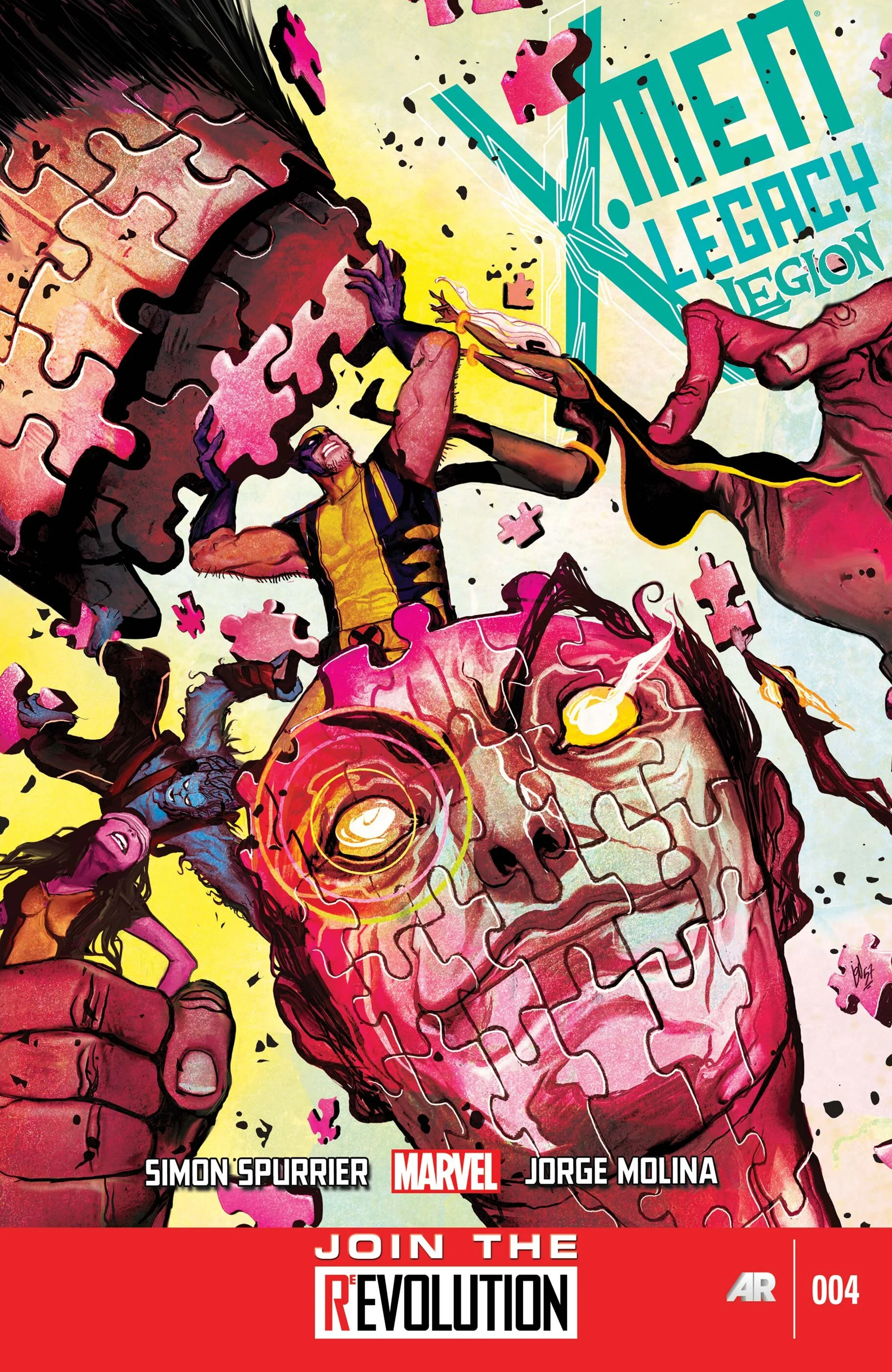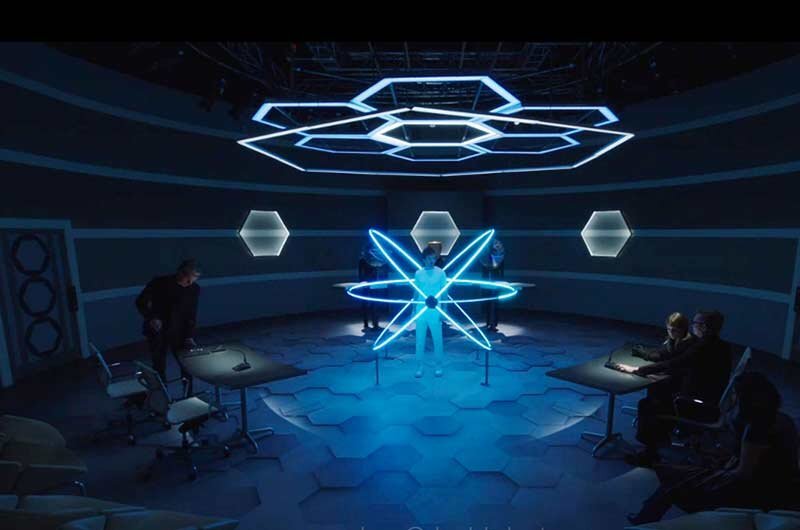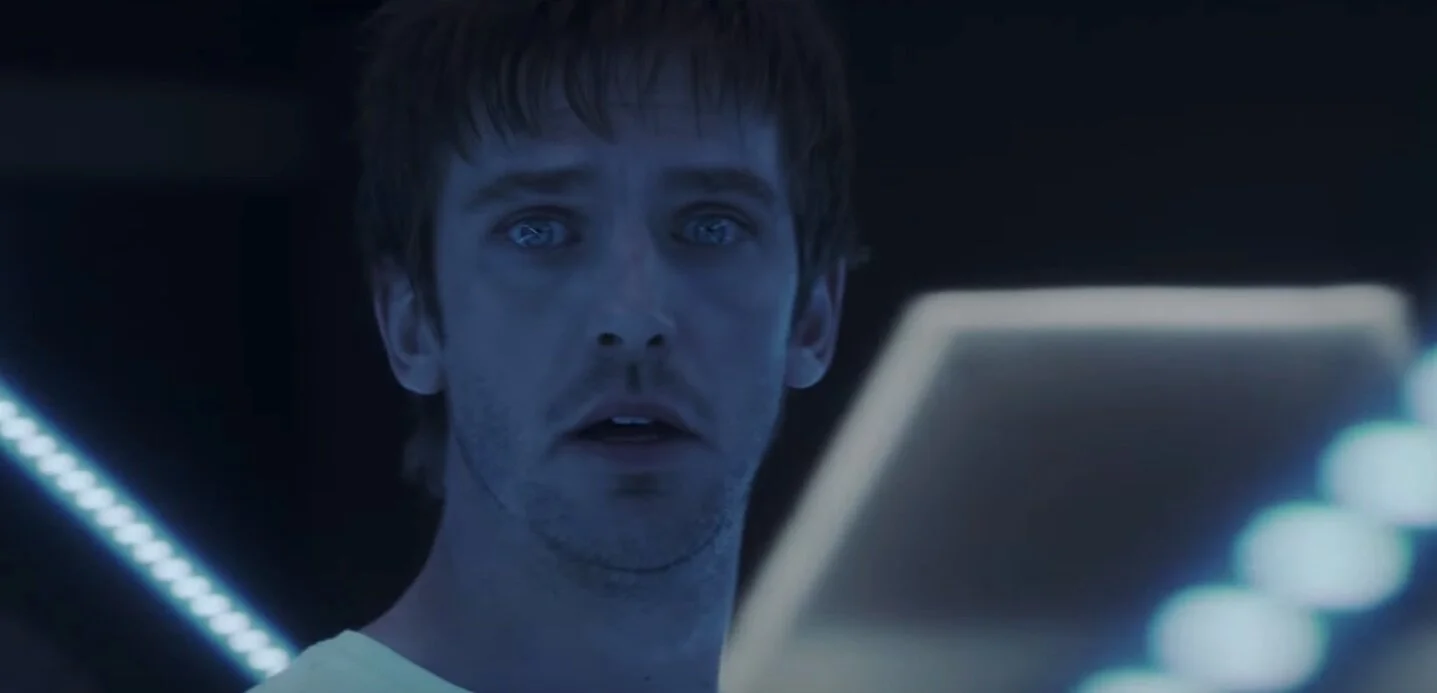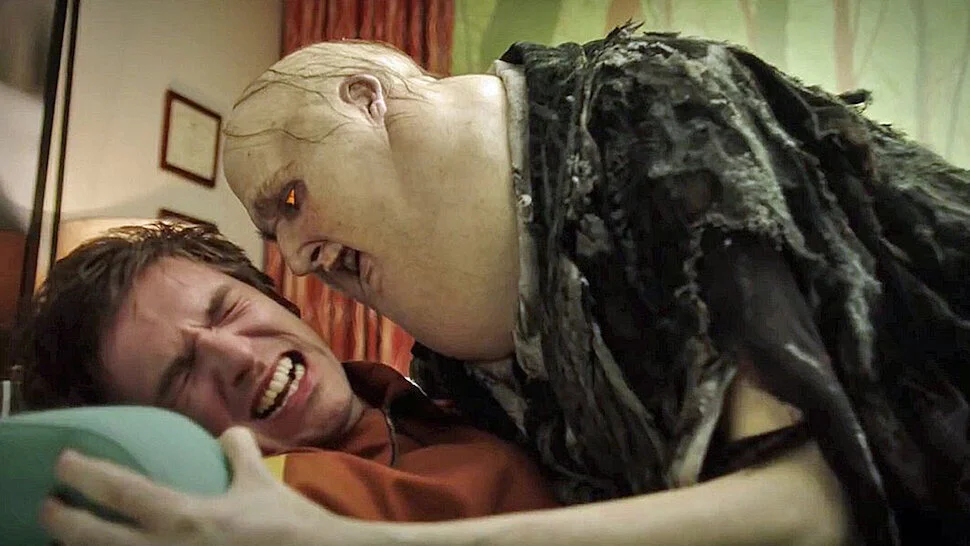10 Ways ‘Legion’ Is The Most Accurate X-Men Adaptation
For three wonderfully bizarre seasons on FX, Legion adapted the story of David Charles Haller from Marvel Comics into a surreal character study and phantasmagoric examination of psychological phenomena. The show never really adapted a particular storyline involving David (a.k.a. Legion, a.k.a. Professor X’s bastard), but used fragments throughout the character’s history and other bits from X-Men lore to create something wholly unique.
The central conceit of Legion, the character created by Chris Claremont and Bill Sienkiewicz, is that he is technically the most powerful telepath/telekinetic/etc. mutant in the world, but is also beset by Dissociative Identity Disorder with various personas not only having their own abilities but their own agendas. In short, for the majority of his existence in the Marvel universe, David has been a tragic figure whose mental health issues cause a lot of pain to others and himself.
Created and overseen by Noah Hawley, the series boasted episodes directed by the likes of Keith Gordon, Ana Lily Amirpour, Dan Kwan, Andrew Stanton, Hiro Murai, and more. It had a fantastic cast led by Dan Stevens in the titular role, plus Jean Smart, Rachel Keller, Aubrey Plaza, Bill Irwin, Jemaine Clement, Hamish Linklater, and more.
Legion was an incredibly uneven show that existed in the weird overlap between pop art, expressionism, and overly cerebral philosophical musings. Yet somehow—despite 13 films, at least five TV shows, numerous video games, and more—this oddball sci-fi drama is the most accurate adaptation of X-Men lore ever brought to another medium.
**SPOILERS FOR THE ENTIRETY OF LEGION TV SERIES**
10. Visualization of Mutant Powers
Lasers shooting out of eyeballs, debilitating loud screams, even flight are various abilities that mutants possess that aren’t just kind of inherently silly but are made even more ridiculous with shoddy f/x. Too many translations of the X-Men have used lackluster CGI or awkward attempts at making these superpowers more cinematic. Sometimes it has worked (Nightcrawler in X2, Wolverine in most of the films), but often it involves people holding their temples or looking very intently while they hope cool stuff is happening in post. Legion was able to employ all sorts of cool talents in its depictions, whether it’s the Rogue-like consciousness transfer of Syd Barrett (Keller), body snatching/mind control of The Eye (Mackenzie Gray), the telepathy of Farouk (Negahban), or the telekinesis that David employs. Heck, even the fairly tame memory powers of Ptolemy (Harris) were rendered with nice visual flair to make them stand out, easily understood by the audience, and pretty cool.
9. Memorable and Inventive Imagery
It’s easy to forget how many striking images are in comic books. Not just those memorable poses or significant panels that have been highlighted for decades. But there’s a blend of all sorts of angles, shapes, and colors to portray a myriad types of people and places while conveying action. Obviously it differs from artist to artist, but often it’s still an impressive feat if you stop to think about it.
Even when they employ interesting animation or some bits of flashy f/x, most X-Men adaptations have been pretty stale in their representation. Usually it’s bland color palette to depict boring locations in a pedestrian manner. Legion has no time for such boring approaches. Every episode is full of gorgeous visuals with experiments in employing heightened colors to communicate emotions and levels of reality. And if there’s a scene at some humdrum location like an office or store, there tends to be little things worked into the background or an innovative approach to lighting to make the imagery engage the viewer beyond the dialogue taking place or the action sequences unfolding. Especially when it’s a musical number.
8. Heroes & Villains/Villains & Heroes
One of the staples of X-Men for an incredibly long time in its existence is the malleable nature between who is a hero and who is a villain. Magneto has fought Xavier and his team many times; he’s also led the New Mutants; and created his own cult to destroy humanity; and joined different iterations of the X-Men. Almost every member of the team has turned against the rest—either due to mind control or in exchange for something else or just cuz they are full of angst. There’s an internal struggle that belies the fact that just because they have something in common—a specific genetic code—doesn’t mean they are a monolith of opinions and values.
This happens in Legion where characters introduced as antagonists (Clark and Farouk, for example) end up becoming vital allies. Meanwhile, people that were seen as heroes (Dr. Melanie Bird, Syd, David himself) end up doing villainous acts and being seen as evil. That shifting morality is right in line with the ethos of X-Men, beyond just within the mutant population itself. Humanity can see the X-Men as superheroes, or as a threat to existence; which is fair as sometimes Xavier’s proteges are helping and other times the Brotherhood of Evil Mutants is laying siege to some poor town.
7. Impossible (But Cool) Technology
Legion’s production design is stellar across the board. Usually a combination of atompunk, brutalism, cassette futurism, and abstract art, it matches the operatic world and unstable minds depicted in the show. One area into which that extends and is surprising to see, and rather subtly accepted by everyone, is in the tech used by characters throughout the show. A halo to help keep David’s thoughts in order, a massive tuning fork whose exact frequency can momentarily nullify psych powers, a floating tiny ball that can kidnap a person, a sensory deprivation tank with all sorts of tubes, wires, and liquid to enhance superpowers, amongst many others.
If you’re familiar with comics, it’s easy to forget how crazy some of the technology is and take for granted how ridiculous it is to be in possession of heroes. The most advanced plane known to man, the cybernetic aspects of Forge, Danger Room, Cerebro, the many impossible forms of communication. These are things that are incorporated to meager extent in other adaptations. Legion embraces it and turns the freak switch to 11 by having a bunch of weird shit and shrugging about how it could actually come to be.
6. The Astral Plane
So many scenes in X-Men comics take place in the astral plane/psychic dimensions. This is where telepaths and the like can square off, or explore the minds of each other, and so on. It was kind of shown in X-MEN: APOCALYPSE but, like the rest of that movie, poorly used and very disposable. Legion not only utilized these psychic battles in very creative ways, but also visualized them in multiple interpretations. It’s not just some odd, cloudy area (like it has been in X-Men comics frequently), but it can be a place for a dance-off, the confines of an office, a rap battle in a Victorian town, an infinite loop of repeating hallways, an exploding garden, and so much more. One of the best psychic battles is in the second season finale with Farouk and David fighting each other while singing The Who and accompanied by dope animation.
5. Muddled Continuity
If one were to map the events of X-Men comics from its beginnings to now, it would be impossible to be a straight line. There have been multiple retcons where the mutant gene could be wiped out, or was from Celestials, or makes them gods, or whatever. There’s time traveling stuff that bungles all minds. As mentioned, multiple characters have switched sides. All have switched appearances. Some have switched names and/or powers, too. It is incredibly difficult to know who each person is, what they’ve been through, and how it impacts what is currently happening. Legion reflects that, for good and ill, by having all sorts of ill-defined meanderings.
Was the minotaur Syd killed a real minotaur or just a psychic manifestation? Then where’d she get the skull? Is the place where Oliver and Melanie look back on the past at the end of season two concurrent with them living inside of a brick in season three and is any of that real? Why are people so quick to trust Farouk at the end of season two? Did David turn Lenny from a fat dude into Aubrey Plaza but then made her a figment of his imagination so Shadow King could use her as a puppet but then take her prisoner in the astral plane until he transmogrified her into the body of David’s stepsister? And now I’ve gone crosseyed.
4. Time Travel!
If you look at how time travel factors into the X-Men comic book universe it is…sheer insanity. There’s the various futures that gave us characters like Phoenix (Rachel Summers), Bishop, Cable, X-Man (Nathan Summers, also a version of Cable), Blink. Recently, the four original X-Men members were plucked from the timestream and brought to the future where they hung out for a long time as part of the group. Time travel is an oddly integral part of the X-Men brand. And Legion attempted to tackle it. First in season two with a Syd from the future trying to get David to help Farouk so Farouk could kill David.
And then in season three with the character of Switch (Lauren Tsai) helping David go back in time to kill Farouk in the past and stop the Shadow King from infecting his mind. It’s a big messy ball that barely holds together (and further confuses that continuity) and it wouldn’t be the X-Men universe without it.
3. It Takes On Big Issues…
X-Men have always been a fertile ground for social commentary and looking at bigger stuff beyond the panels of superheroes fighting supervillains. There’s been much made about how the very concept of mutants act as metaphors for different races, sexualities, genders, and more—a group that is hated and attacked just for how they were born. Meanwhile it has also looked at matters like parenthood, religion, personal autonomy, civic obligations, and more. Many folks have pointed out similarities in the relationship between Xavier and Magneto as MLK and Malcolm X; but in later years there was even another parallel in terms of being a part of America or outside of it that recalled the debates between W.E.B. Du Bois and Booker T. Washington.
Legion fearlessly plunges into similar debates and larger issues. There’s a big question about identity and how it’s defined (and who defines it). It looks at fate versus free will, as the characters question whether or not they are on a set path and can’t avoid what happens next. There’s the question of consent and choice when dealing with people that can get into the minds and bodies of others. The usual gods/monsters vs mankind discussions. The nature of mental health and how it affects people. In season two, almost every episode of Legion was preceded by a narration (by Jon Hamm!) that covered a larger concept such as delusion, placebo effects, conspiracies, and more. These broad ideas were gorgeously illustrated and helped inform the bonkers episode that was about to follow.
2. …Maybe Bigger Than It Can Handle
Funny thing about that willingness to tackle big issues—you better hit the bullseye. In X-Men, for example, there was a “cure” for the mutant gene. People applauded this storyline (notably it was written by Joss Whedon. so…) and saw the parallels between this approach to a people and the horrendous practice of conversion therapy for members of the LGBTQIA+ community. And there certainly is some overlap there! But…mutants also can be inherently dangerous to others and themselves based on their mutation. Their “special ability” may mean a horrific life of actual physical pain (not just expulsion from mainstream society). This was fairly summarized in this classic bit from the Internet:
There’s been other situations where the attempt at saying something profound has ended with…just a big wet fart. In keeping with that spirit, Legion had more than a few of those moments. Probably the biggest one was in the season two finale where Noah Hawley’s “master plan” for the series was revealed and David was then seen as a villain. The whole second and third acts of that episode are a mess but here we go:
Melanie (under influence of drugs and Shadow King) shows Syd images of David torturing Oliver and thinks David is therefore a Bad Guy. David was torturing Oliver because Shadow King is possessing Oliver. This is after Shadow King killed his sister (see above) and while Shadow King’s trying to find his body so he can rule the world. Syd decides to kill David because of what she saw. Oh and because David kissed a Syd from the Future but didn’t tell Present Day Syd about it. That’s not as big a deal, but it’s part of it. David protests this but then stops her and wipes the whole event from her mind. Later that night, David and Syd have sex. Cary (Bill Irwin) reviews tape and sees what has transpired and tells Syd. Syd, Cary, Kerry, Division 13, Farouk hold David on trial. Syd directly says that he drugged her and had sex with her. David can either succumb to the help he needs (one of the possibilities being medication, which everyone knows David hates and dulled his mind as well as his abilities) or he can be killed. Again, his mortal enemy that has killed his sister and poisoned his mind for many years is part of this group accosting him. David isn’t happy and declares war on everyone. Oh and like two episodes prior it was revealed that Syd raped a man and he went to prison and the summation was we all do bad things and hurt people and that’s part of all of us but Syd and David have each other. That shouldn’t factor into all of this, but it’s a weird inclusion for the character and then have this come up so quickly after.
Now then, wiping the mind and having sex is absolutely wrong and rape (if not only incredibly rape-y). But everything surrounding the situation is so muddled and weird with so many factors put into it that it dulls the villainy (or selfishness) of David’s actions—especially having Farouk suddenly part of the team. So while tackling an already thorny issue like consent, Legion throws in mind control, psychic imagery, and possessed people. Not great.
Breaking Bad had a protagonist that did blatantly horrible things for years, but the fans continued to like him for a variety of reasons (mostly a vicarious power fantasy), and they hated those that sought to check his deadly actions (like his wife). Legion decided to have David go from hero to villain in one scene and over the topic of consent (with all that muddled baggage above), and that just invites some terrible responses and defenses that no one should want. Not to mention it also reinforces a lot of bad stereotypes and stigmas about mental health. In occasionally typical X-Men fashion, Legion swung for the fences and it hit the ballboy with the bat instead.
1. It’s Really Fucking Weird
X-Men is bizarre. Putting aside all of the robots, time travel, alien species, magic, demons, and more—for just a moment—some of the powers that have been created through the years are pretty odd. There was Maggott, whose mutant ability was two giant slug-like creatures on him that would eat whatever substance and they acted as his digestive system. Glob Herman, who just has see-through skin and may be a bit stronger than most folks. A mutant whose eyes explode lasers, another who tosses around fireworks, a woman who can control all weather systems, and more. Then they go to other dimensions, like one ruled by an obese cyborg obsessed with television, or various Hell dimensions after one of their allies (who was a clone of one of their friends) is turned into a Goblin Queen. And on and on. The world of the X-Men is fucking weird. And it is terrific.
And so, thankfully, is Legion. There’s a bunch of storylines that are essentially cul-de-sacs. Why are there a bunch of identical androgynous robots with Gallagher mustaches? What about that Legion episode where, following the devastating grief over losing his sister, David foresees all sorts of other realities for him (those without his sister, mostly) that find him in a whole host of predicaments and attitudes? What about the rap battles? The dance-offs? The cryogenically frozen Oliver who lives in an ice cube in the astral plane and rocks out to Feist records? Legion is fucking gonzo in the best way. It’s not heroes in leather suits fighting bad guys. It’s not beautiful people who have a kind of weird haircut but almost total control over their powers. X-Men does have those things, but it tackles big issues (sometimes poorly) in a beautiful way that makes a mess out of its own storyline while employing odd stuff to create incredibly human and relatable adventures. And that’s exactly what Legion did as well.


